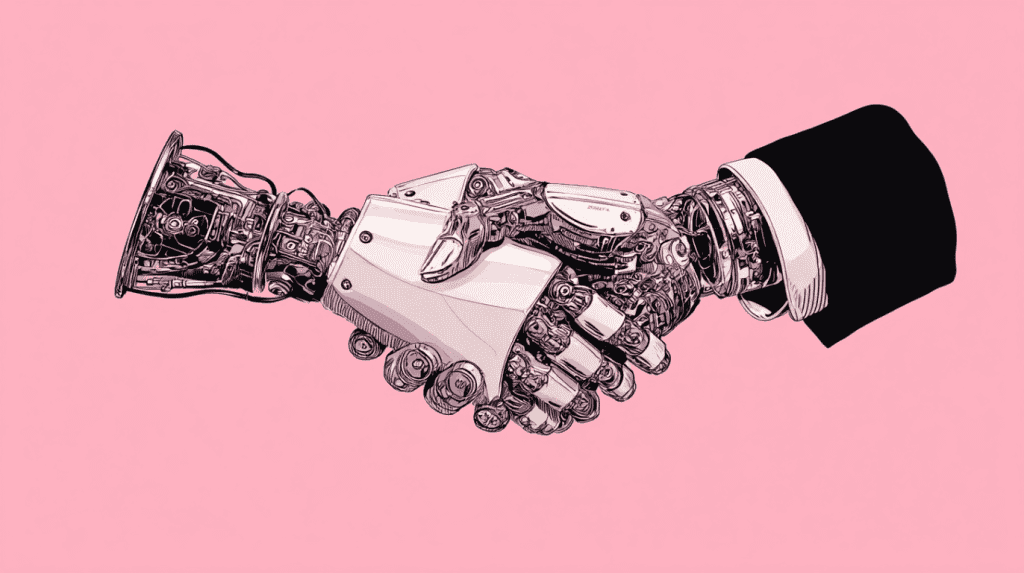AI's Dual Impact: Reshaping Liability Insurance and Streamlining Healthcare
2 Sources
2 Sources
[1]
The rewards of AI are huge, but so are the risks -- enter AI insurance
Artificial intelligence is a transformative and disruptive technology, affecting every person's life. Whether you are shopping online, interacting with a customer service center, reading information on a website, getting medical care, passing through airport security or driving in an autonomous vehicle, it is highly likely that that AI is involved. Any time AI touches our lives, there is a chance that something may go wrong. AI models must be trained with data, and sometimes the data will inadvertently mislead the AI models. This may lead to misguided AI-driven advice or information -- or in the worst case, a missed medical diagnosis that can lead to poor health outcomes. So who is responsible? The courts will need to wrestle with enough such cases to define laws that provide meaningful insights and resolution. Generative AI that uses large language model have already kept the courts busy, focusing on data copyright infringements. Yet when the courts rule in favor of plaintiffs and establish liabilities, it begs the question: Is insurance needed? For the consumer, should they purchase insurance to protect against misinformation and poor guidance offered by AI tools? This is hardly necessary. The providers of the information, whether offered by AI or humans, are responsible. But what about those organizations that are integrating AI across their operations -- what type of liabilities are they assuming in doing so, and will insurance protect them against such liabilities? Will existing liability coverage already cover such events, or will insurance companies use the AI revolution to market and offer AI-specific liability insurance protection? There are a few salient points to keep in mind. The insurance industry sells pooled risk instruments at a profit. They will not offer insurance unless the risk calculus is in their favor, and they can reap a healthy return. AI liability insurance offers some challenges. First, there are limited historical damage records to rely upon to determine appropriate insurance premiums. To mitigate such risk, some insurers may opt to overprice insurance as they collect data. This may lock some potential customers out of the market, yet may be necessary to manage risks when the full implications of the risks remain unclear. Deloitte issued a report highlighting AI insurance as a growth opportunity for the insurance industry. They project $4.7 billion of premiums over 10 years, though, like any forward-looking analysis, this is near impossible to validate, given that predictions of this type are shrouded in uncertainty. If it did provide a reasonable "guestimate," that would amount to around $470 million per year, though the annual premiums would be heavily backloaded as AI risks become more apparent. To put this number into perspective, there was around $4 trillion of premiums written in 2022 for non-life events worldwide. This means that $470 million per year of premiums is around 0.012 percent of this total (or around 1/83rd of one percent). It will likely take quite some time before AI insurance becomes a significant part of global insurance premiums. Of course, anytime there is risk, particularly a new risk, there is an opening to introduce and market insurance products. For potential customers, assessing AI risk exposure is difficult, given that there is no historical record, which makes determining the appropriate levels of coverage a challenge. The insurance industry will certainly seize upon this opportunity. Will companies need AI-specific insurance? To answer this question, think of AI systems as company employees. If an employee makes a mistake that is costly to customers, there is a liability. Insurance is purchased or a fund is created (with self-insured entities) to address such liabilities. The more salient issue is how the courts will continue to rule on AI-driven liabilities issues. This will be a critical factor informing the risk (and insurance) calculus, which is why setting premiums for AI-driven liabilities will continue to be a challenge. As AI becomes more ubiquitous in society, mistakes and personal injuries are certain to occur. Even if the rate of such events is lower than with human-driven systems, some in the legal profession will seize the opportunity to profit from such liabilities. Such actions may place headwinds on the use of AI and even limit the benefits that it can accrue. Insurance is a valuable tool for protecting assets and limiting the cost of liabilities. It will also play a role in shaping the future of AI, given that managing risk is at the fulcrum of the insurance industry and AI will significantly impact risk in the coming decade.
[2]
AI May be Poised to Streamline Health Insurance Industry
Artificial intelligence (AI) is set to change the health insurance industry, potentially slashing costs and boosting revenues for payers grappling with economic pressures. As insurers face rising medical service utilization and provider costs and tightening Medicare Advantage reimbursements, AI and automation technologies offer a possible solution to improve efficiency and profitability. Payers could reportedly achieve "net savings of 13 percent to 25 percent in administrative costs and 5 percent to 11 percent in medical costs" by leveraging currently available AI technologies, according to Mckinsey & Co. Furthermore, the report projects a potential "3 percent to 12 percent higher revenue" for insurers who fully embrace these innovations. For a growing number of doctors, AI chatbots that draft letters to insurers in seconds are reportedly expediting the fight to approve costly claims, achieving in minutes what years of advocacy have not. This technological shift comes as significant insurance companies face class-action lawsuits for allegedly using their technology to deny large batches of claims swiftly. Experts warn this could lead to an AI-driven "arms race" in the prior authorization process, where bots battle bots over insurance coverage. The use of AI to deny healthcare claims is also under scrutiny. A class-action lawsuit claims that health insurer Humana used an AI model called nHPredict to wrongfully deny medically necessary care for elderly and disabled patients under Medicare Advantage, a plan managed by private insurers. Another recent lawsuit alleges United Healthcare also utilized nHPredict to reject claims despite knowing that approximately 90% of the denials were erroneous and overrode patient physicians' determinations of medical necessity. The recent McKinsey study identifies several key areas ripe for AI-driven transformation. Claims processing, network and contracting, utilization management, care management and information technology all stand out as domains AI could significantly impact. Marketing and sales emerged as one of the areas with the highest potential for AI-driven improvements. The report suggested that AI could enhance targeted marketing efforts, improve customer acquisition strategies and optimize pricing models. "To capture full value, payers must reimagine the end-to-end processes of each domain," the report said, emphasizing that incremental changes will not suffice. This comprehensive approach could lead to significant competitive advantages for industry early adopters. The study noted that these estimates are based on an average-performing payer, suggesting that lower-performing companies could significantly improve by adopting AI technologies. Despite the promising outlook, the health insurance sector faces hurdles in realizing the full potential of AI. The report noted that payers generally lag behind other industries in AI capabilities, highlighting the need for substantial investments in technology and talent. To close this gap, insurers must focus on six critical areas identified in the report: developing a business-led digital roadmap, attracting and retaining AI talent, redesigning operating models, upgrading technology infrastructure, improving data quality and accessibility, and successfully adopting and scaling AI solutions. The report poses challenging questions for insurance industry CEOs, including how they would respond to "a competitor with 20 percent lower administrative costs or one with 10 percent lower medical costs." It also urges executives to identify the most promising areas for AI implementation within their organizations and to ensure they have access to the necessary talent and technology infrastructure. Industry experts have identified several promising use cases for AI in health insurance. In claims processing, AI can automate adjudication, reducing processing time and errors while identifying potential fraud. Machine learning algorithms can predict which procedures will likely be approved or denied for utilization management, streamlining the prior authorization process. In care management, AI can help identify high-risk patients who benefit from early interventions, potentially reducing costly hospitalizations. Customer service can be enhanced through chatbots and natural language processing to handle routine inquiries, improving response times and freeing up human agents for more complex issues. AI models can also analyze vast amounts of data to predict individual and population health risks more accurately, leading to better pricing and product design. The McKinsey report suggests that capturing AI's total value will require more than technological investments. It will necessitate a fundamental rewiring of payer organizations, involving talent strategies, operating models and organizational culture changes. AI and automation could provide a critical competitive edge as the health insurance landscape evolves. However, the industry's ability to overcome implementation challenges and adapt to this new technological paradigm remains to be seen.
Share
Share
Copy Link
As AI technology advances, it's creating new challenges in liability insurance while simultaneously offering potential solutions for streamlining the health insurance industry. This dual impact highlights the complex relationship between AI and the insurance sector.

AI's Influence on Liability Insurance
The rapid advancement of artificial intelligence (AI) is posing new challenges for the liability insurance industry. As AI systems become more prevalent in various sectors, including healthcare, transportation, and finance, insurers are grappling with the complexities of assessing and covering AI-related risks
1
.One of the primary concerns is the potential for AI systems to make errors or decisions that lead to harm or financial losses. Unlike traditional insurance scenarios where human error is often the root cause, AI-driven incidents may involve multiple parties, including software developers, data providers, and system operators. This complexity makes it difficult to determine liability and appropriate coverage
1
.The Need for Specialized AI Insurance Products
As the AI landscape evolves, there is a growing demand for specialized insurance products tailored to address AI-specific risks. These may include coverage for algorithmic bias, data breaches, and unintended consequences of AI decision-making. Insurers are being challenged to develop new models and policies that can adequately protect businesses and individuals in an AI-driven world
1
.AI's Potential to Streamline Health Insurance
While AI presents challenges in liability insurance, it also offers promising solutions for streamlining the health insurance industry. The complex and often inefficient processes in healthcare administration are ripe for AI-driven improvements
2
.AI technologies have the potential to automate and optimize various aspects of health insurance, including:
- Claims processing: AI can expedite claims review, reducing processing times and improving accuracy.
- Fraud detection: Machine learning algorithms can identify patterns indicative of fraudulent claims more effectively than traditional methods.
- Customer service: AI-powered chatbots and virtual assistants can handle routine inquiries, freeing up human agents for more complex issues
2
.
Related Stories
Balancing Innovation and Risk
The insurance industry finds itself at a crossroads, needing to balance the opportunities presented by AI with the new risks it introduces. On one hand, AI offers the potential to create more efficient, accurate, and personalized insurance products and services. On the other, it presents novel challenges in risk assessment and liability determination
1
2
.As AI continues to evolve, insurers, policymakers, and technology developers will need to collaborate to create frameworks that promote innovation while ensuring adequate protection for consumers and businesses. This may involve developing new regulatory guidelines, industry standards, and ethical considerations specific to AI in insurance contexts.
References
Summarized by
Navi
Related Stories
Major Insurers Retreat from AI Coverage as Multi-Billion Dollar Risk Concerns Mount
24 Nov 2025•Business and Economy

Lloyd's of London Launches Insurance Coverage for AI-Related Losses
12 May 2025•Business and Economy

Former Anthropic Exec Launches $15M AI Insurance Startup to Mitigate Risks of AI Deployment
24 Jul 2025•Business and Economy

Recent Highlights
1
Google Gemini 3.1 Pro doubles reasoning score, beats rivals in key AI benchmarks
Technology

2
Meta strikes up to $100 billion AI chips deal with AMD, could acquire 10% stake in chipmaker
Technology

3
Pentagon threatens Anthropic with supply chain risk label over AI safeguards for military use
Policy and Regulation





